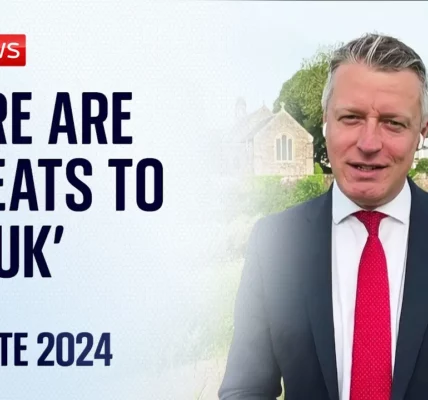Bold Actions for Apprenticeships and Education Reform

During a recent visit to Cornwall, the conversation shifted towards the future of education in the UK. With a focus on closing underperforming university degrees and promoting high-quality apprenticeships, we delve into the implications of these policies and their potential to transform young people’s lives.
Introduction to the Current Education Landscape
The ongoing debate about the value of university education versus vocational training has reached a critical point in the UK. As young people face increasing financial burdens and uncertain job prospects, the need for effective educational pathways has never been more urgent. The recent discussions in Cornwall highlight a bold proposal by the Conservative Party: closing down underperforming university degrees and reallocating those funds towards creating 100,000 new high-quality apprenticeships. This initiative aims to provide young people with viable alternatives to traditional university routes, fostering a more inclusive and practical approach to education.
The Case for Apprenticeships
Benefits of Apprenticeships
Apprenticeships offer a range of benefits that make them an appealing option for many young individuals:
- Hands-on experience in a real work environment.
- The opportunity to earn while learning.
- Development of practical skills that are in demand by employers.
- Better job security and career progression opportunities.
Success Stories from Apprentices
During the visit to Cornwall, many apprentices expressed their enthusiasm for their experiences:
- Many described their apprenticeship as the best decision they ever made.
- Apprentices highlighted how their roles provided them with invaluable industry insights.
- They emphasized the importance of mentorship and support from their employers.
Critique of Underperforming University Degrees
The Need for Reform
Independent studies indicate alarming trends regarding university education:
- Approximately 20% of students would be financially better off not pursuing their degrees.
- One-third of graduates find themselves in non-graduate jobs, questioning the return on investment for their education.
Identification of Problematic Degrees
The proposal to empower regulators to assess underperforming degrees focuses on several key metrics:
- Progression rates of students through their courses.
- Dropout rates that indicate potential dissatisfaction or lack of support.
- Post-graduation earnings to evaluate the economic impact of specific degrees.
Political Context and Future Implications
Conservative Party’s Vision
The Conservative Party aims to position itself as the champion of practical education, contrasting sharply with the Labour Party’s focus on university education. This approach is seen as a way to:
- Enhance workforce readiness among young people.
- Stimulate economic growth through skilled labor.
- Ensure that every young person has access to opportunities that match their abilities and aspirations.
Labour Party’s Stance
In contrast, the Labour Party has been criticized for clinging to traditional educational paradigms, promoting the idea that university is the only pathway to success. This perspective raises concerns about the lack of innovative solutions to address the evolving needs of the economy.
Conclusion: A Call to Action
The dialogue surrounding education reform in the UK is crucial as it shapes the future for countless young people. By closing underperforming university degrees and investing in high-quality apprenticeships, we can create a more inclusive and practical educational landscape. It is imperative for voters to consider these proposals carefully in the upcoming elections. By supporting initiatives that prioritize skill development and real-world experience, we can ensure a secure and prosperous future for the next generation. For more insights on education reform and apprenticeship opportunities, explore our related articles.
“`




